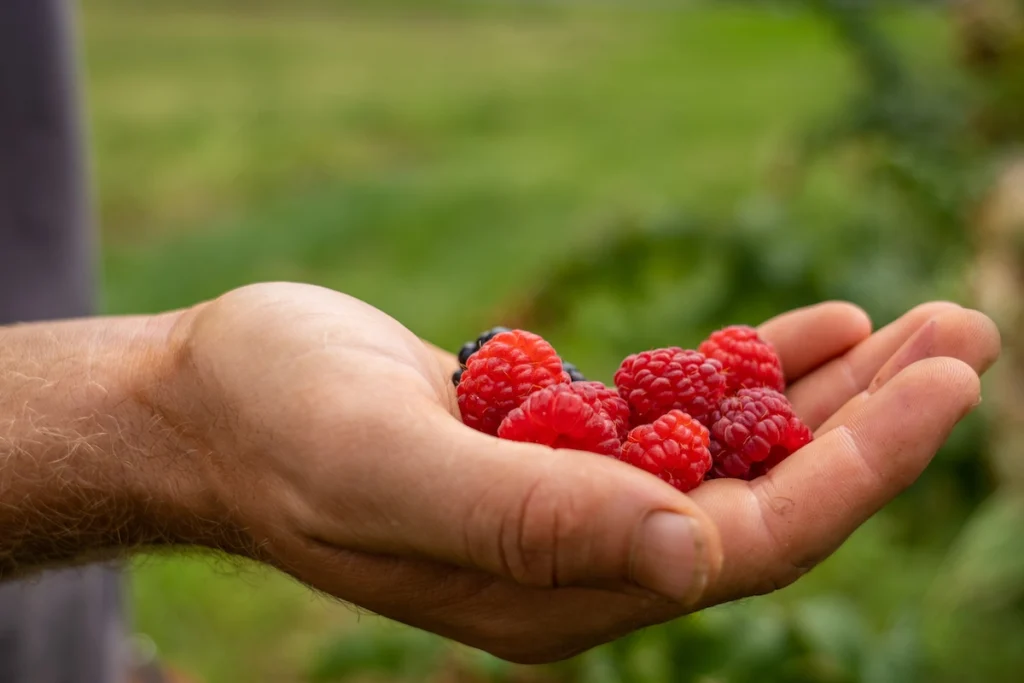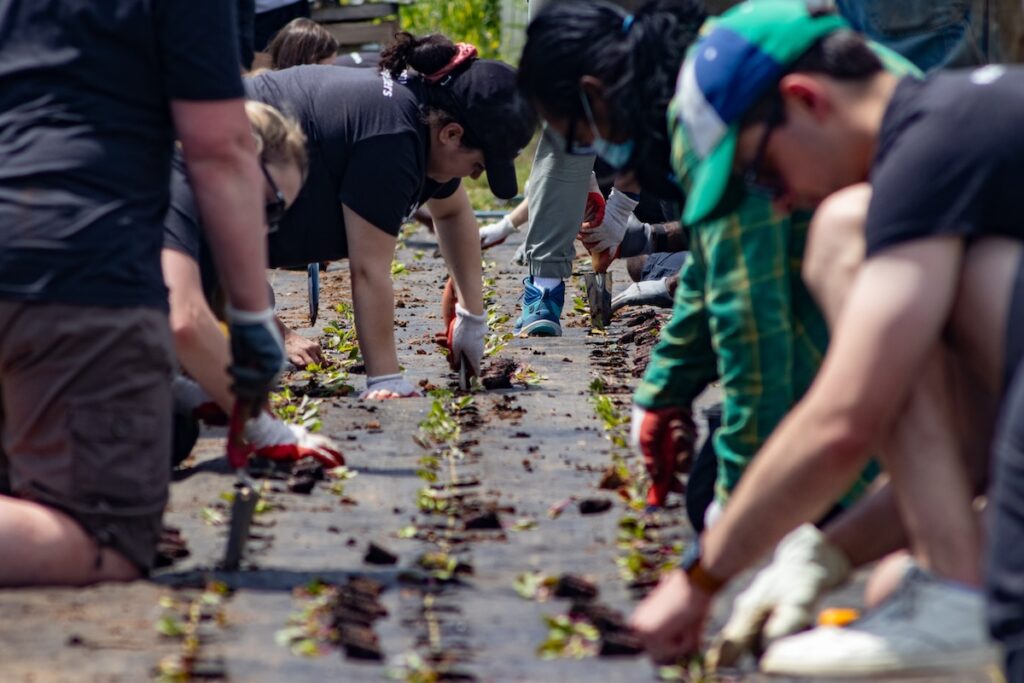When a PEC staff member recently posed the question “what does the farm mean to people beyond just donating to food pantries?” I remembered my first farming experience, when I discovered that farms are so much more than the food they grow.
In summer 2019, I interned at my university’s campus farm where we grew organic produce for the dining hall. I loved following the plants from seed to vegetable and doing everything I could to get them there — it gave me purpose to give them life. I craved the way the soil crumbled in my fingers, and I wore the dirt that stained my hands as a badge of pride.
Although I grew up playing sports outside, I had never done that type of physical labor in the heat, and it felt good to push my body. Sharing the discomfort of those long, hot days with my coworkers somehow made the grit of all sweeter, especially seeing the joy our delivered produce brought to the chefs’ faces.
Strangers and family members alike started to tell me that I looked happy. I had heard all my life that purpose gives you happiness, but I didn’t know for myself until I experienced the discipline and constant connection to people and place that is deeply rooted in community-focused agriculture. That summer brought clarity to my career and life trajectory, and refined my view of the local food system and all of its interdependent parts. Food became both an interactive experience and a product of collaboration in a way that’s easy to miss unless you’ve experienced some part of the process yourself.

Now, I have the pleasure of sharing this revelatory experience with volunteers at PEC’s Community Farm, hoping they too might witness the multifaceted beauty of agriculture.
We begin each volunteer day with a history of the Roundabout Meadows property and the hardscape of strip malls and residential development it would have become if not for 20 years of determined conservation effort. Then we share the steps we’ve taken since then to restore the property, improve its soil, and retain its agricultural use. We’ve improved water quality in Howser’s Branch with cattle-exclusion fencing and hosted field walks to showcase the reestablished native grassland meadow. We tell volunteers about our food pantry partners and their essential work feeding food-insecure people in Loudoun and Clarke counties. And as they transition into the day’s work of transplanting seedlings, harvesting, or mulching, volunteers experience the why and how behind our sustainable farming practices, a small but mighty piece of PEC’s vision.
The Community Farm’s narrative is often centered around the food we donate, but it is also a tale of land conservation and connection. To experience agriculture is to reinvite the people, plants and land back into the narrative of our food. When visitors and volunteers spend time at the farm, I hope the personal stories they create with food are also stories of community and relationship.

As the days get longer and our seventh season begins, I invite you to the Community Farm to create new memories with meaningful food interaction. Come observe the fields, hold a seedling in your palm, hear the wind move through the orchard, smell just-harvested beets or taste sun-warmed berries. Come witness how the farm is not just vegetable production, but also a showcase of land stewardship and a place for conversations about more sustainable communities. I invite you to come and be surprised at what you might learn about yourself and the many environmental and human forces at play in agricultural systems. This discovery is what first drew me into farming in 2019 and what still keeps me hungry for more.
How to get involved
Our volunteer season runs from the beginning of April through October. Our volunteers are individuals, families, school and church groups, scouts and clubs, and business groups. As they help us grow a diverse array of fruits and vegetables, volunteers learn about the importance of hunger relief programs, sustainable agriculture and practices for responsibly stewarding the environment. Learn more and sign up to volunteer at pecva.org/farm.
This article appeared in the 2025 Spring edition of The Piedmont Environmental Council’s member newsletter, The Piedmont View. If you’d like to become a PEC member or renew your membership, please visit pecva.org/join.
